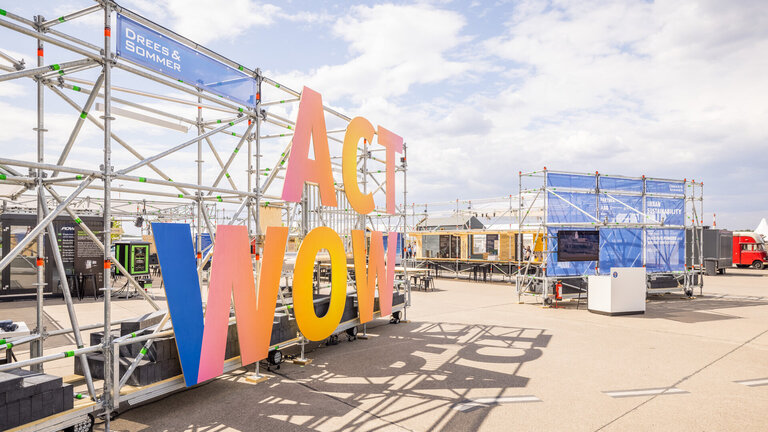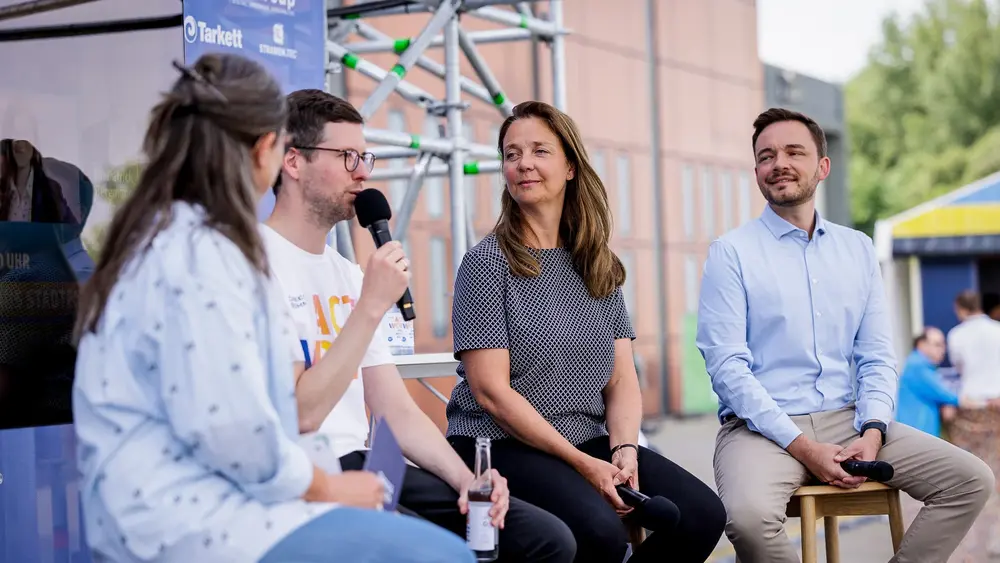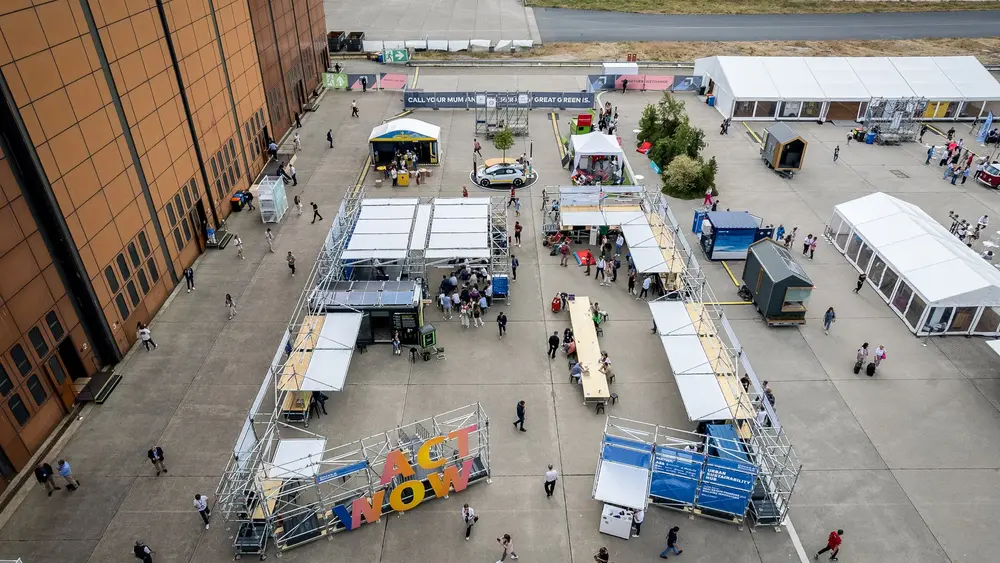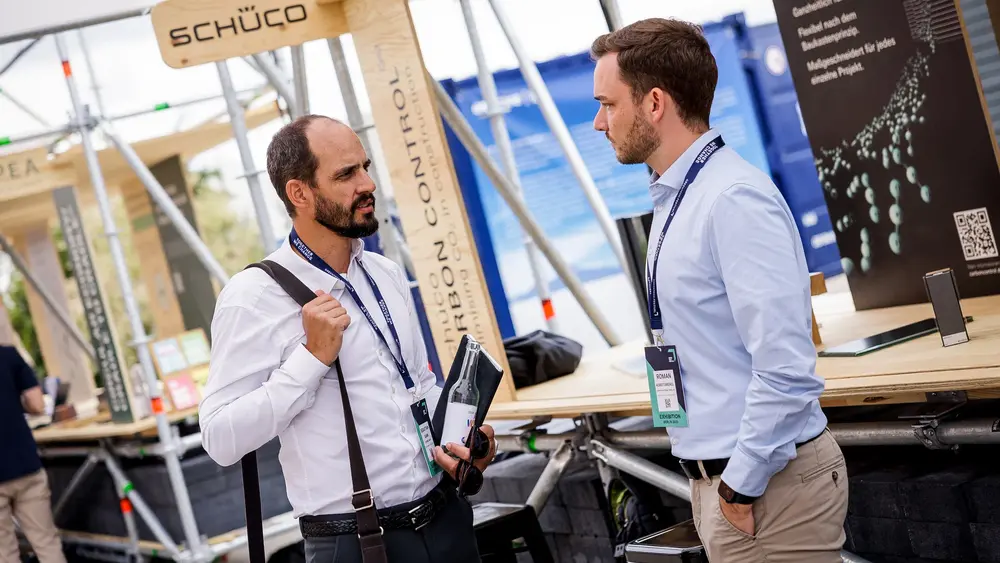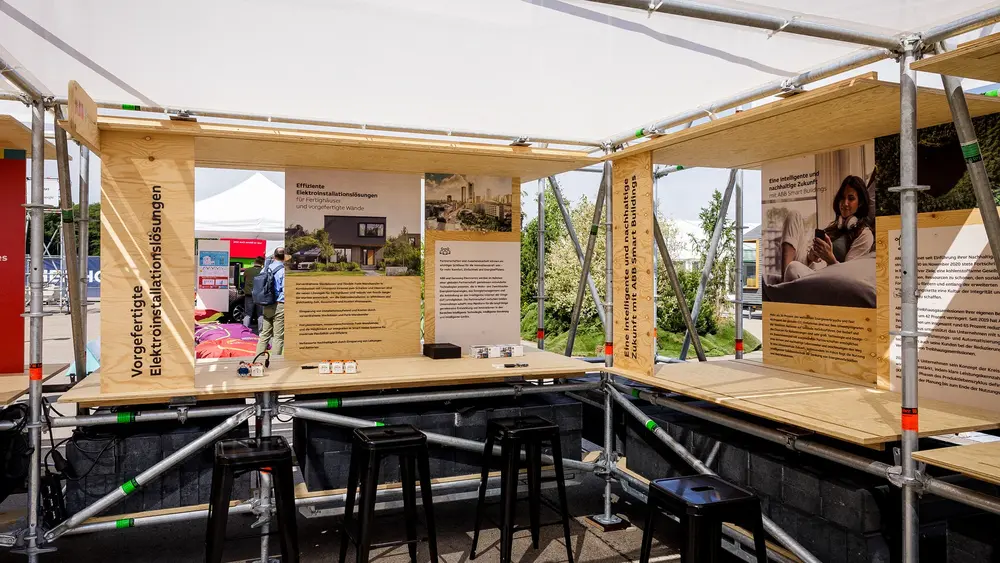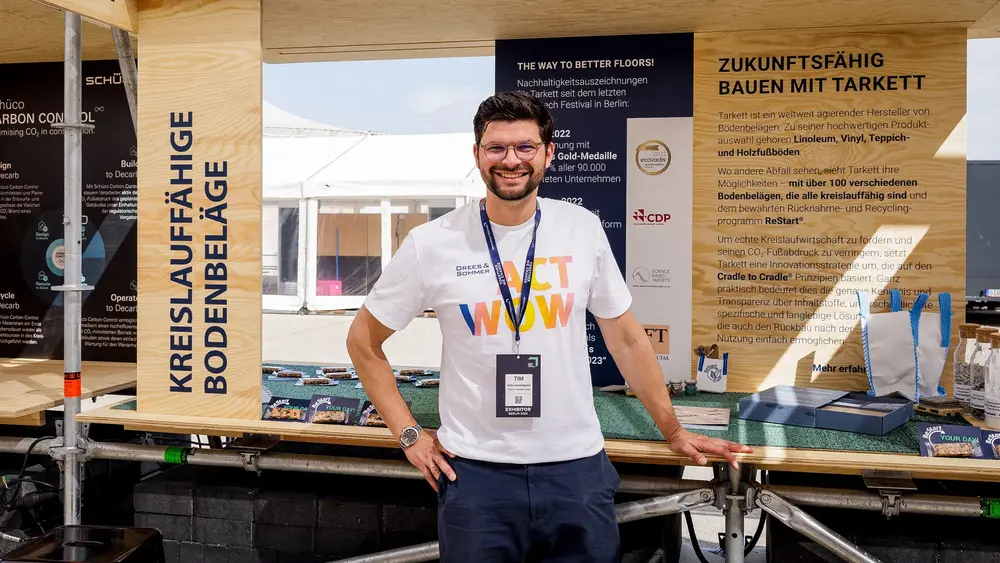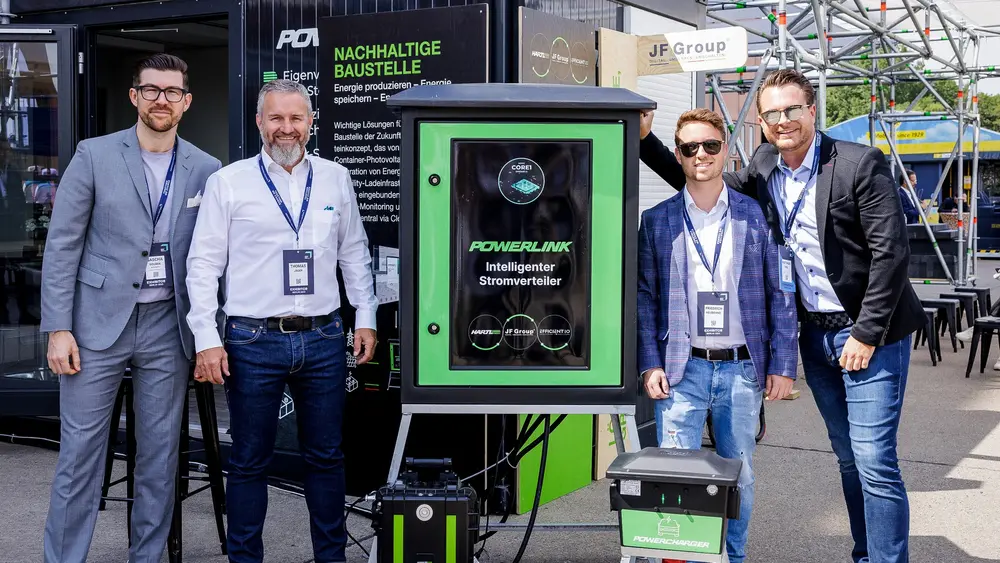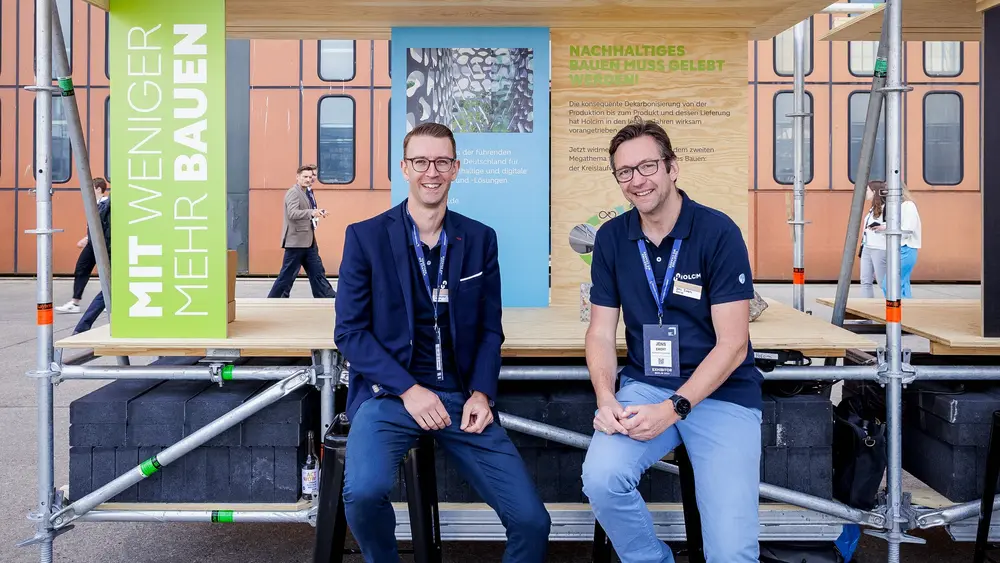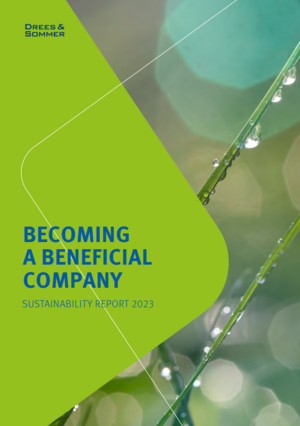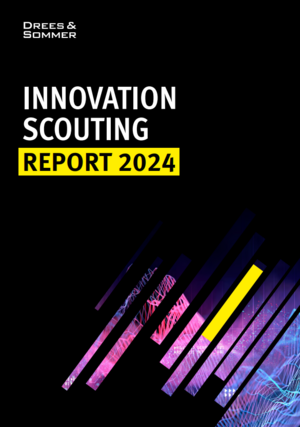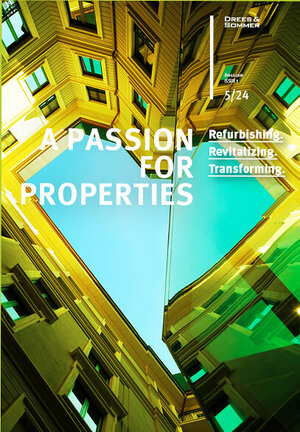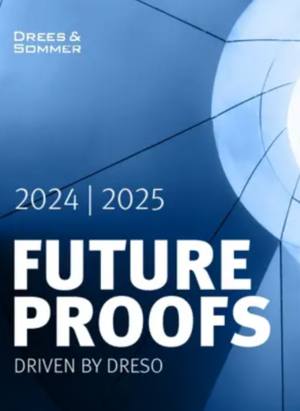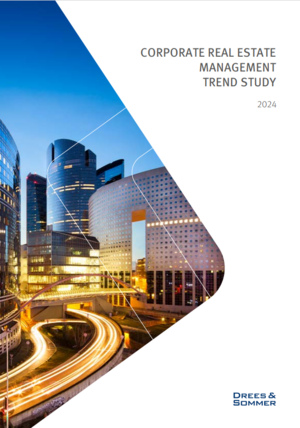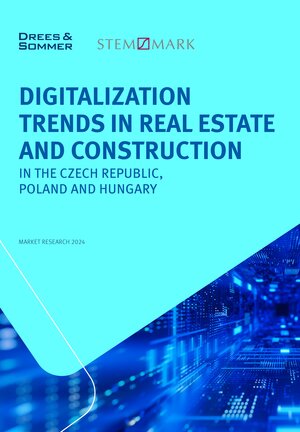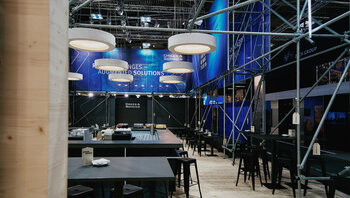In 2023, the GREENTECH FESTIVAL took place for the fifth time. It was launched by former Formula 1 world champion Nico Rosberg together with entrepreneurs Marco Voigt and Sven Krüger in 2019 and is now Europe’s largest sustainability festival. It is a place for innovative people and companies with a pioneering spirit to come together. The positive forces at work here could be experienced over three days in mid-June at the former Tegel Airport.
Green city of the future
The 2023 festival was all about the “Mission to Net Zero” and brought to the stage key figures such as Swedish climate researcher, Johan Rockström, Chief Sustainability Officer at Google, Kate Brand, and Co-President of The Club of Rome, Mamphela Ramphele.
Drees & Sommer felt it was in good hands at an event so dedicated to transformation. At the Urban Sustainability Hub, we worked with ten like-minded partner companies (ABB|Busch-Jaeger, Solo Lighting, E.ON, EPEA—Part of Drees & Sommer, HOLCIM, JF Group, madaster, Schüco, Tarkett and STRAMEN.TEC) to present innovative green technologies for a sustainable smart future for cities, neighborhoods, buildings, and the construction industry. By doing so, we set a good example of sustainability in the development of the stand.
The materials were designed by our own brand experience experts, reduced to the essentials and selected in the spirit of the circular economy, while the furniture was borrowed. This stand proves that circularity is also possible for temporary buildings.
Urban sustainability
Our aim with the Urban Sustainability Hub was to show that change is already in full swing and to inspire and captivate those who are still hesitant. “We have adopted the motto ‘Act now, act wow’ because we are all about doing. We don’t want to grumble because something isn’t progressing and we don’t want to find excuses as to why this is the case. We want to act. It’s up to us,” said Steffen Szeidl, CEO of Drees & Sommer.
Therefore, the focus was on concrete solutions that can already be applied today to a wide range of pressing problems. For example, the presentations and panels on the associated Urban Sustainability Stage dealt with strategies for a plastic-free future, e-fuels, networked modularity for dynamic building concepts, more efficient construction sites and the extent to which greentech start-ups can be enablers for the city of the future.
Circular economy in the construction industry
It all started with the topic of “Raw material savers: turning yesterday’s cities into tomorrow’s cities.” Or, to put it another way, urban mining, which is based on the knowledge of which materials are used in existing buildings and which can be recycled to close cycles. The online Madaster platform, which is a land register for materials, provides the construction and property industry with a tool for registering, documenting and archiving building materials.
The information in the building resource passport, as the discussion showed, must be detailed and accurate in order to distinguish between truly sustainable products and those that only pretend to be. Only then is a realistic life cycle assessment possible. For manufacturers who want to use secondary raw materials, this means that they need to get their suppliers and specialized companies on board in a more targeted manner.
Expansion of charging infrastructure:
“Charging without suffering: building public charging infrastructure the right way” was the title of another discussion that explored the question of how electromobility can gain momentum more quickly. By 2030, significantly more charging points will be needed than today. To achieve this, everyone must play their part. Local authorities, politicians, charging infrastructure operators, the industry, and the retail sector are all required, even those who install wall boxes privately, as this will improve the basic supply.
One thing is clear: we need intelligent grids and charging systems that are gentle on the overall system or, at best, even reduce the burden on it. We also need leaner authorization processes. The good news is that good concepts have long been available in this field and can be transferred. The city of Wiesbaden has worked with Drees & Sommer to set a good example.
CO2 reduction
But there can be no energy transition without a green heat transition, as members of our Zero Carbon team, such as Leonardo Estrada, testified. At the Urban Sustainability Stage, under the title “Green heat transition: heating up for climate-neutral solutions,” experts presented their answers to the question of how the switch to renewable energy is changing not only the way we generate electricity, but also how heat is created.
They talked about technologies such as large-scale heat pumps and deep geothermal energy, which are bringing us closer to a carbon-free future. Utilizing waste heat via heating networks is another key aspect of the green heat transition.
Conclusion from the Greentech Festival: we can do more together
It is tangible solutions like these that inspire Steffen Szeidl. At the end, he summarized the event with an optimistic view: “It was special to see that all industries and sectors were represented here and showed that they want to make a difference,” he said. The GREENTECH FESTIVAL will be held again in Singapore in November.

